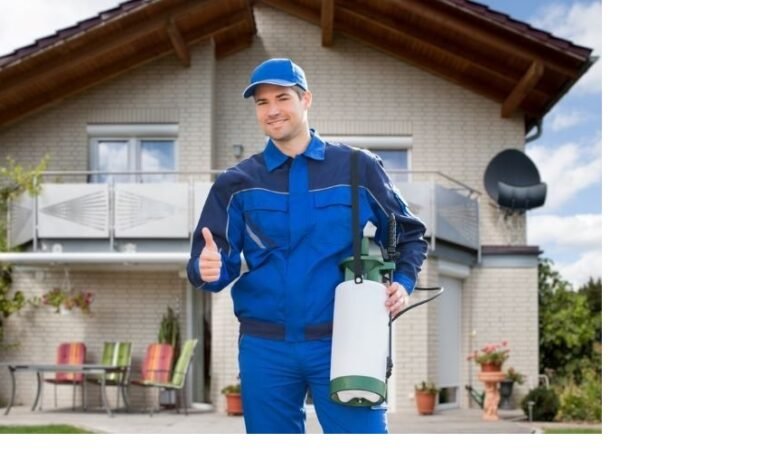
Protecting Your Home from Pest Damage
Pests can cause significant damage to homes, compromising structural integrity and creating health hazards. Implementing effective pest control measures is essential to protect your home and maintain a safe living environment. This article provides practical tips for safeguarding your home against pest damage, with insights on pest control in Portland.
Understanding Common Household Pests
Different pests can invade homes, each causing specific types of damage.
Termites
Termites are among the most destructive pests, feeding on wood and compromising the structural integrity of homes. They are often hidden, making early detection challenging.
Rodents
Rodents like mice and rats can chew through wires, insulation, and wood, leading to structural damage and potential fire hazards. They also carry diseases.
Ants
Ants can infiltrate homes in search of food and water. Carpenter ants are particularly problematic as they can damage wood structures.
Cockroaches
Cockroaches are not only unsightly but also pose health risks by contaminating food and surfaces with pathogens.
Preventive Measures
Preventive measures are crucial for keeping pests at bay and protecting your home from damage.
Maintain Cleanliness
A clean home is less attractive to pests.
- Regular Cleaning: Clean floors, countertops, and other surfaces regularly to remove food residues and crumbs.
- Proper Food Storage: Store food in airtight containers and promptly clean up spills.
- Waste Management: Use sealed trash bins and dispose of garbage regularly.
Seal Entry Points
Pests can enter your home through small cracks and openings. Sealing these entry points can prevent infestations.
- Inspect and Seal Cracks: Regularly inspect your home for cracks and gaps in walls, windows, and doors. Seal these with caulk or weatherstripping.
- Repair Screens: Ensure that window and door screens are in good condition and repair any damage.
- Install Door Sweeps: Use door sweeps to seal gaps at the bottom of exterior doors.
Regular Inspections
Regular inspections can help detect pest problems early, preventing significant damage.
Professional Inspections
Consider scheduling regular inspections with professionals specializing in pest control in Portland. They can identify signs of pest activity and recommend appropriate treatments.
Self-Inspections
Conduct regular self-inspections, looking for signs of pests such as droppings, gnaw marks, and nests. Pay particular attention to basements, attics, and other secluded areas.
Landscaping and Outdoor Maintenance
Proper outdoor maintenance can reduce the risk of pests entering your home.
Trim Vegetation
Keep trees, shrubs, and other vegetation trimmed and away from your home. Overhanging branches and dense foliage can provide pathways and shelter for pests.
Remove Debris
Clear away leaves, wood piles, and other debris that can harbor pests. Store firewood away from the house and off the ground.
Maintain Gutters and Drains
Ensure that gutters and drains are clear of debris to prevent water accumulation, which can attract pests.
Moisture Control
Many pests are attracted to moisture. Controlling moisture levels in and around your home can deter these pests.
Fix Leaks
Repair leaky pipes, faucets, and roofs promptly to prevent water accumulation.
Use Dehumidifiers
In damp areas such as basements and crawl spaces, use dehumidifiers to reduce humidity levels.
Proper Ventilation
Ensure proper ventilation in attics, basements, and crawl spaces to keep these areas dry.
Pest Control Methods
In addition to preventive measures, using pest control methods can help manage existing infestations.
Chemical Treatments
When necessary, chemical treatments can effectively eliminate pests.
- Insecticides: Use insecticides to treat infestations of insects like ants, termites, and cockroaches. Follow the manufacturer’s instructions for safe application.
- Rodenticides: Use rodenticides carefully to control rodent populations. Place baits in areas inaccessible to children and pets.
Natural Remedies
Natural remedies can provide a safer alternative to chemical treatments.
- Essential Oils: Oils like peppermint, eucalyptus, and lavender can repel pests. Mix with water and spray around entry points and problem areas.
- Diatomaceous Earth: This natural powder can be used to control insects by sprinkling it around the home.
Traps
Traps can help manage pest populations without chemicals.
- Rodent Traps: Use snap traps, glue traps, or live traps to capture rodents.
- Insect Traps: Use sticky traps or light traps to capture flying insects.
Professional Pest Control Services
For comprehensive pest management, consider enlisting professional pest control services. Experts in pest control in Portland can provide tailored solutions for your home.
Customized Treatment Plans
Professional pest control companies can develop customized treatment plans based on your specific pest issues and home environment.
Ongoing Maintenance
Regular visits from pest control professionals can help maintain a pest-free home through ongoing monitoring and treatment.
Preventive Advice
Professionals can offer valuable advice on preventive measures and best practices for keeping your home pest-free.
Conclusion
Protecting your home from pest damage involves a combination of preventive measures, regular inspections, proper maintenance, and effective pest control methods. By understanding common household pests and implementing these strategies, you can safeguard your home and maintain a healthy living environment. For persistent pest issues, consulting experts in pest control in Portland can provide specialized solutions and ensure long-term protection. Taking these steps will help keep your home safe, secure, and free from pest-related damage.













